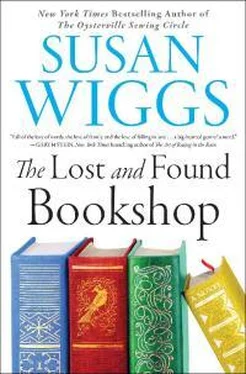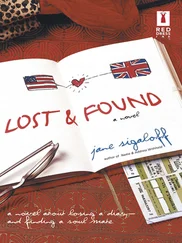Natalie Harper was not that client.
She was always hard at work when Peach showed up in the morning, and she was still working when he left each day. She and her staff were looking for ways to improve the bottom line, like expanding the coffee service and putting on events for readers.
She was good at her job, greeting customers who came in and helping them find what they were looking for. During slow periods—and there seemed to be too many of those—she worked efficiently at her computer station. She stayed calm through phone calls that would drive most people crazy— I don’t have a certified copy of the death certificate yet. I can’t access those documents until there’s a court appointment making me her personal representative. The official cause of death is in those papers . . . Each time she had to reexplain the situation, her voice sounded thinner and more weary. Each time her grandfather mistook her for her mother or treated her like a stranger, the heartache showed in her haunted eyes.
While Peach patched the wall he’d broken into, Natalie fielded a call from some lawyer, which she took on speaker while shelving books. The lawyer suggested she sue the aircraft company and plane manufacturer.
Her eyes took on a glassy haze. “What, sue them because my boyfriend was bringing my mother to watch him propose to me?”
Stabbing her finger at the phone to end the call, she looked up and noticed him. He set down his trowel and wiped his hands on a rag.
“I’d ask how your day’s going, but I overheard your conversation.”
“In my wildest dreams, I never imagined getting a call like that.”
“So, uh, I didn’t realize you’d lost your boyfriend in the crash, too.”
She shivered slightly, folded her arms. “Yes, he’s . . . he was a pilot. A good one, and the thought of suing . . .” She tightened her folded arms. “It’s complicated. Or maybe not. Maybe I’m just a horrible girlfriend. Even after he died I was horrible. I hocked his ring to pay bills.”
Oh.
“It’s no crime to be practical,” he said. “You’re looking after your grandfather. Doing what you have to do.”
She stared at the floor, then back at him, her eyes soft with sorrow.
“I sure wish I could help more.”
She looked at his plaster trough and the trowel. “You’re helping,” she said.
He offered a slight smile and went back to work. You’re helping. He wished he could patch up her heart.
Later that day, she made several calls to publishers, some to work out a plan to settle bills, others to see about scheduling book signings with famous authors.
He had to admire her persistence and patience, even when she had to explain—repeatedly—that the well-known proprietress of the Lost and Found Bookshop had died. Cleo, her coworker, came in to work and asked if she’d had any luck setting up events.
Natalie scanned the shop—empty except for Peach—with a wistful glance. “Maybe writers are like guys,” she said. “All the good ones are taken.”
“You’ll find someone,” Cleo said. “Several someones.”
“I’ve left a dozen voice mails,” Natalie said. “Nobody returns calls anymore.”
Peach didn’t know anything about running a bookstore, but he figured any writer would feel lucky to sign books here. For all its faults, the place was a gem—great atmosphere, a treasure trove of old and new books, a staff of folks who knew and liked literature.
He motioned Natalie over. “Can I show you something?”
“Good news or bad news?” she asked him, her voice thin with weariness.
“I feel like the grim reaper.” He led the way to the upstairs bathroom, an excessively feminine space dominated by an impressive antique tub with high sides and claw feet. The room smelled like flowers and candles. Hunkering down, he aimed his flashlight at the pried-up floorboards in the space under the tub.
“If anybody deserves a break,” he said, “it’s you. But this needs to be addressed.” He showed her where galvanized pipe had been improperly connected to copper pipe. A slow fiasco was unfolding beneath the floorboards.
“This is bad, right?” Natalie asked quietly. “How bad?”
“Is the bathtub going to go crashing through the floor today? Nah. But the longer it goes on, the more it’ll take to fix it.”
She sat back on her heels and nodded glumly. “You’d better fix it.”
He extended a hand and helped her to her feet. It occurred to him that he hadn’t held a hand other than Dorothy’s in a long time. They went to the main room of the apartment, which was filled with light slanting through the dormer windows and playing with the angles of the roof. The millwork had details from the Gilded Age—fretwork and corbels, flourishes from a bygone era.
“What?” she asked. “I can see you’re having thoughts.”
“You can, eh?”
“The way you’re looking around. Is something else falling apart?”
“You can always find something in a building this old. But that’s not what I was thinking. This place is really beautiful. Tons of original historical detail, and it hasn’t been ruined by a bad remodel job.”
She set her hands on her hips and slowly turned. “That’s kind of you—to say something nice about this old place.”
“Seriously, it’s a classic. I love the character of it.”
“As far as I know, it’s never been touched. We were either averse to change, or too broke to upgrade.”
“It’s pretty great.” He noticed a guitar case in the corner. “You play?”
“Not really. Mom got that at a rummage sale when I was a kid, and we taught ourselves a few three-chord songs.” Her expression softened with remembrance, but then the worry frown reappeared. “I guess you could say I have a love-hate relationship with this place. I love that our entire family history lives here, and I hate that we can’t afford to keep it.”
“Not that it’s any of my business, but you’d have buyers lining up. It’s in a prime location, has the kind of vintage appeal people can’t get enough of. I see places like this selling for cash, as-is.”
She sat on the rolled arm of a comfy-looking sofa and knotted her hands together until her knuckles turned white with stress. “That was my first inclination after the crash. The bookshop was my mother’s reason for living, and I thought without her, it couldn’t go on.” She brushed her hand across a soft blanket on the back of the sofa. “It’s not mine to sell, though. It wasn’t even my mother’s. Everything belongs to my grandfather, so it’s his call, and he won’t budge. He was born here, grew up here, made his living here. I want him to enjoy his retirement in a place he loves. Uprooting him now would break his heart.”
What about your heart? Peach wondered, but not aloud.
“He’s lucky to have you,” he told her.
“I’m the lucky one,” she said. “He’s my only family, and it’s a privilege to look after him. I’m going to do what it takes to keep him here.”
“Now that,” said Peach, “is something I can help you with.” He wanted to say more, ask her more. Instead, he said, “I’d better get to work.”
In Andrew’s apartment, Peach had already finished installing sturdy holds in the bathroom. Now he built a ramp leading down to the garden in back. While he worked, the old man seemed absorbed in reading yellowed pages and documents from a big folder, turning the pages with his unsteady hands. Sometimes the tremors were so bad, he would press his hands flat on the table, an agonized expression on his face. Every now and then, he would glance up with a benign gaze and make some comment or other, drifting in and out like the window curtain blowing in the breeze. Peach realized he was seeing the symptoms that kept Natalie up at night.
Читать дальше












